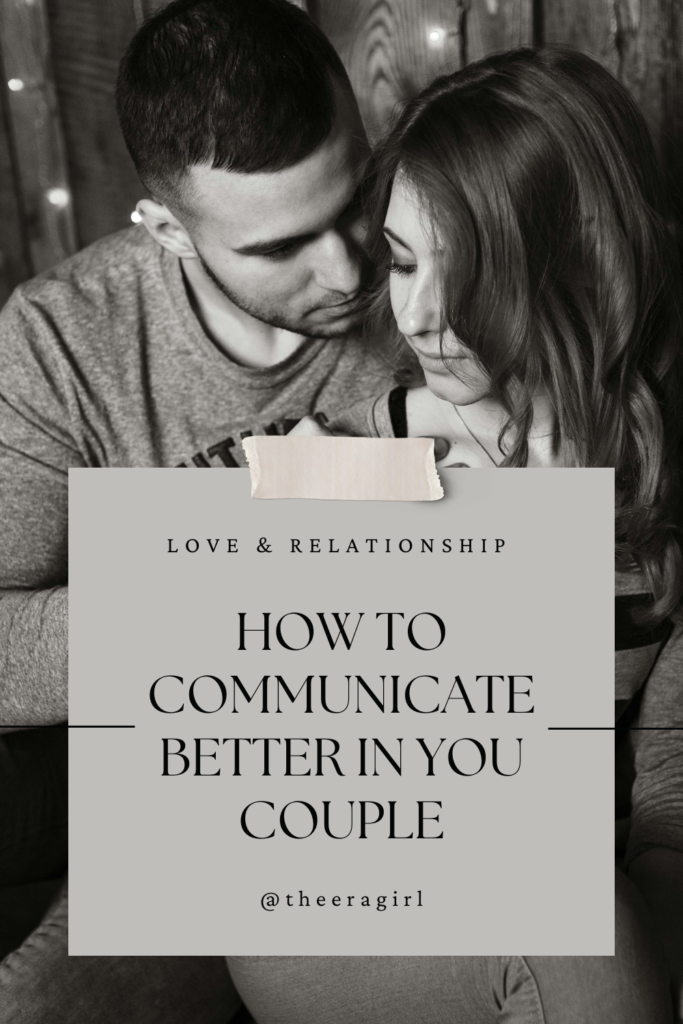
Communication can feel effortless at the beginning of a relationship. But as time goes on, it’s easy for misunderstandings, disagreements, and even silence to sneak in. Great and better communication isn't just about talking – it’s about connecting, understanding, and growing together. Here’s how to build those skills and connect better with your partner.
In this article, we’ll dive into essential tips and strategies that can help you communicate more effectively with your partner. From learning to listen actively to expressing yourself with kindness, these tools will help you create a deeper, more connected relationship where both of you feel heard and valued.
Let’s get started!

1. Listen More Than You Speak
Listening well is often the foundation of effective and better communication in your relationship . While we might think of conversations as a two-way exchange of words, truly understanding your partner means giving them the full space to express themselves without interruption or judgment. Listening isn’t about waiting for your turn to speak or planning what you’ll say next – it’s about being fully present and tuned in to their thoughts and emotions.
Why it matters: When you listen actively, your partner feels heard, validated, and respected. This can prevent miscommunication and show your partner that their thoughts are valued. Active listening helps you understand not only the words they’re saying but also the underlying emotions that drive them. This makes it easier to respond in a way that is both empathetic and supportive, which can strengthen your bond and make even difficult conversations more constructive.
How to do it:
- Put away distractions. Silence your phone, turn off the TV, and give your partner your undivided attention. This shows them that they’re your priority.
- Use body language to show engagement. Simple gestures, like making eye contact, nodding, or leaning in slightly, signal that you’re fully present.
- Paraphrase to confirm understanding. When your partner finishes sharing, reflect back what you heard. For instance, say, “So what I’m hearing is that you’re feeling overwhelmed by your work responsibilities. Is that right?” This ensures that you understand correctly and gives them a chance to clarify if needed.
- Avoid interrupting or giving advice unless asked. Sometimes your partner just needs to feel heard. If you’re unsure, ask, “Would you like advice or would you prefer I just listen?” This can make a big difference, as it aligns with what they need in the moment.
By consistently practicing active listening, you create an environment where open, honest conversation feels natural and safe.

2. Speak Honestly, But with Kindness
Expressing yourself openly is just as important as listening. But honesty needs to be balanced with kindness to ensure that your words come across as supportive, not hurtful. When you speak honestly, you’re inviting your partner to understand your feelings and needs, which paves the way for a stronger, more transparent relationship. However, it’s important to frame your words in a way that doesn’t put your partner on the defensive.
Why it matters: Honest communication helps avoid resentment and misunderstandings in your relationship. When you’re able to share your feelings openly, issues can be addressed before they become bigger problems. Speaking kindly also shows respect for your partner’s feelings, making them more receptive to your perspective. This approach builds trust, which is essential for resolving conflicts and maintaining intimacy.
How to do it:
- Use “I” statements to own your feelings. For example, say, “I feel neglected when we don’t spend quality time together” instead of “You never make time for me.” This small shift can make a big difference by focusing on how you feel rather than blaming your partner.
- Be specific about what you’re feeling and why. Instead of vague statements like “You’re always busy,” try something like, “I feel disconnected when we don’t have time to talk in the evenings.” Specificity helps your partner understand exactly what’s bothering you and gives them a clear way to address it.
- Choose a calm time to talk. Avoid bringing up difficult topics in the heat of the moment. Instead, find a quiet, relaxed time when you can both be fully present. A calm setting helps ensure the conversation stays constructive rather than turning into an argument.
- Express appreciation and positive reinforcement. Don’t only speak up when things are wrong. Reinforcing positive behaviors can strengthen your bond. For example, if your partner has been making an effort to communicate better, acknowledge that by saying, “I really appreciate how you listened to me yesterday.”
When you speak with kindness, you’re creating an environment where both of you feel safe to express yourselves. Open, compassionate dialogue becomes easier, and even difficult topics can be addressed in a way that brings you closer together.

3. Be Curious, Not Judgmental
Assumptions can be one of the biggest barriers to communication in relationships. When we think we already know what our partner is thinking or why they acted a certain way, it can lead to misinterpretations and conflict. Instead of judging or jumping to conclusions, approach conversations with curiosity. This means asking questions to understand their perspective rather than immediately reacting.
Why it matters: Curiosity allows you to approach conversations with an open mind, reducing the chance of misunderstandings. By showing that you’re genuinely interested in your partner’s thoughts, you foster a more open and safe space for dialogue and a better communication in your relationship. This approach helps build empathy and makes it easier for both of you to handle challenging discussions calmly and constructively.
How to do it:
- Ask clarifying questions. If something your partner says or does seems confusing or hurtful, avoid assuming the worst. Instead, ask, “Can you tell me more about what you meant?” or “I’d like to understand how you’re feeling about this.”
- Use open-ended questions to invite deeper conversation. Rather than “Did you have a good day?” try, “What was the best part of your day?” or “What’s been on your mind lately?” These questions encourage your partner to open up and share more.
- Listen without inserting your own opinion. When your partner is explaining their perspective, try to hold back from sharing your viewpoint immediately. Let them finish fully before responding, and focus on understanding their side.
- Acknowledge and validate their feelings. Even if you disagree, recognize their feelings as valid. Saying, “I can see how that would be frustrating for you” shows empathy and respect for their experience.
Approaching your partner with curiosity fosters a more positive, non-judgmental atmosphere, which encourages openness and trust.

4. Embrace Silence as a Tool
In emotional conversations, it’s easy to feel pressured to respond quickly or fill the silence with words. But sometimes, a moment of silence can be the best way to give each other space to process emotions and think. Silence allows both of you to cool down, reflect, and avoid impulsive responses that might lead to regret.
Why it matters: Using silence strategically can prevent arguments from escalating. It gives you both a chance to gather your thoughts and emotions before saying something you might not mean. Silence can be especially helpful in heated moments, allowing you to take a step back and re-approach the conversation more thoughtfully.
How to do it:
- Pause before responding. If your partner says something that triggers you, take a deep breath and wait a few seconds before replying. This small pause can help you respond more calmly and thoughtfully.
- Communicate that you need a break if emotions are high. If you feel yourself getting overwhelmed, say, “I need a moment to think about what you said.” This signals to your partner that you’re not shutting down but simply taking time to respond thoughtfully.
- Encourage your partner to do the same. If they seem upset, offer them space as well. Let them know it’s okay to take a moment, so neither of you feels pressured to respond immediately.
- Practice deep breathing to calm your mind. During a moment of silence, take slow breaths to calm your mind and reset your emotions. This helps you re-enter the conversation with a clearer perspective.
Using silence thoughtfully can defuse tension and create space for clearer, more meaningful communication in your relationship.

5. Make Communication a Routine
Many people think of communication as something you only need during conflicts in your relationship. But making open dialogue a routine part of your relationship can strengthen your connection and prevent small issues from growing into bigger problems. Routine check-ins show that you’re committed to nurturing the relationship and provide a time to share thoughts, express gratitude, and address concerns in a low-stakes setting.
Why it matters: Consistent communication builds trust, intimacy, and emotional security in your relationship. When you and your partner are used to sharing regularly, it becomes easier to bring up difficult topics and maintain an ongoing sense of closeness. Regular check-ins also make it less likely for small frustrations to fester, creating a foundation of openness and honesty.
How to do it:
- Schedule weekly or monthly check-ins. Choose a time each week or month for a “relationship check-in.” This can be a relaxed evening at home or even a walk where you can talk openly about how you’re feeling and any areas that need attention.
- Ask open-ended questions. Instead of just saying, “Is everything okay?” try questions like, “How have you been feeling about us lately?” or “What’s something I could do to support you better?” These questions encourage meaningful dialogue.
- Celebrate the positives, too. Use check-ins not only to address concerns but also to recognize what’s going well. Share what you appreciate about each other and acknowledge the efforts you both are putting into the relationship.
- Set small goals for improvement. If there are things you’d like to work on, set realistic goals for the coming week or month. For example, if quality time is an issue, agree to spend one uninterrupted evening together each week.
By making communication a routine, you’re building a relationship where you both feel comfortable expressing your needs and celebrating your successes.

6. Be Patient with Yourself and Your Partner
Improving communication takes time and patience. Both of you will have moments where conversations don’t go as planned, and emotions can get in the way. The goal isn’t perfection – it’s progress. Being patient with each other allows you to keep working toward better communication without the pressure of instant results.
Why it matters: Patience helps build resilience in your relationship. It allows both of you to make mistakes, learn from them, and keep growing together. Without patience, minor missteps can feel like major setbacks, which can add unnecessary strain to your connection.
How to do it:
- Acknowledge that communication is a skill. Remind yourself that learning to communicate well is a process that takes time. Instead of getting frustrated, see each conversation as an opportunity to improve.
- Take breaks during tough conversations. If you’re both feeling frustrated, it’s okay to take a break and come back to the conversation later. Sometimes a little time can give you a fresh perspective.
- Celebrate small improvements. Notice the times when communication goes well or when you both make an effort to handle things better. Recognize these small wins as steps toward building a stronger relationship.
- Apologize and forgive quickly. If you or your partner says something in the heat of the moment, be quick to apologize and forgive. Patience means understanding that neither of you will be perfect, but you’re both committed to improving.
Patience allows you both the grace to make mistakes, learn, and continue building a healthier, happier relationship.

7. Seek Help if You Need It
Sometimes, despite your best efforts, communication challenges can feel overwhelming in your relationship. Issues might be too complex or emotionally charged to resolve on your own. In these cases, seeking help from a counselor or therapist can provide valuable guidance and tools to navigate difficult conversations. Therapy isn’t just for relationships in crisis – it’s a proactive step that can strengthen your bond.
Why it matters: Working with a therapist can provide you with communication techniques, conflict-resolution skills, and a neutral space to express feelings without judgment. Even if things are going well, therapy can help you and your partner understand each other on a deeper level and prepare for any future challenges that may arise.
How to do it:
- Find a therapist who specializes in relationships. Look for someone who understands the dynamics of romantic relationships and can offer practical, evidence-based tools.
- Be open-minded and committed to growth. Therapy can feel uncomfortable at first, but staying open to the process will help you both get the most out of it.
- Set goals for therapy together. Before starting, discuss what you hope to achieve. This can be anything from learning conflict-resolution skills to building stronger emotional intimacy.
- Continue practicing skills outside of sessions. Apply what you learn in therapy to everyday interactions. For example, if you learn a new communication technique, practice it regularly to make it part of your routine.
Seeking help shows a commitment to your relationship’s long-term health. A therapist can help you build a toolkit for handling conflicts, improving understanding, and deepening your connection.

Improving communication with your partner isn’t about talking more; it’s about connecting better. With these tips, you can work toward a relationship where both of you feel heard, understood, and valued. Communication is an art that takes practice, patience, and an open heart – but it’s worth it for the love and growth it brings.

